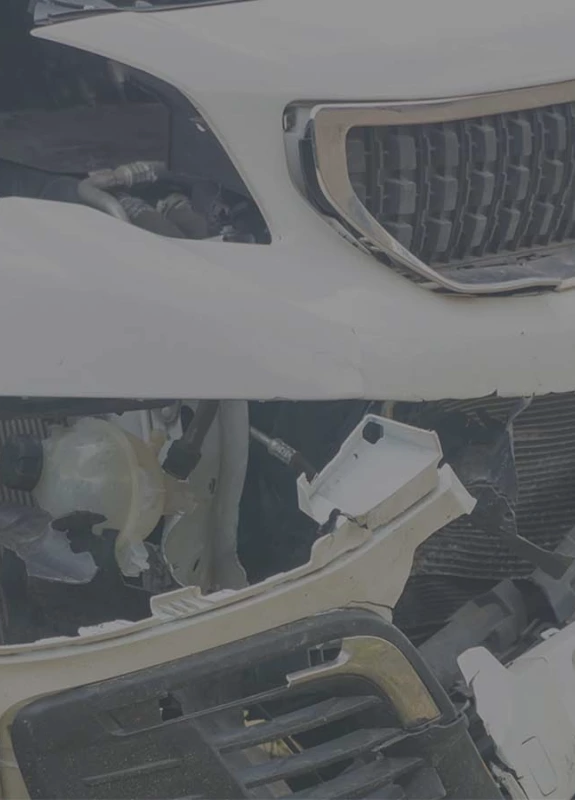If you get into a fender-bender, there’s a chance your car will just need a quick repair before it’s as good as new. But if the accident is bad enough, your car might be totaled — meaning the insurance company writes it off as a total loss. But can a car be totaled from a rear-end collision?
The short answer is that any kind of crash can total a car, but there are a lot of factors that go into an insurance company’s decision to deem a vehicle a total loss. Here’s a closer look.
When Is a Car Considered to Be Totaled?
If your car is damaged in an accident, your insurance company (or the at-fault driver’s insurance company) typically pays to fix it. But sometimes, the cost to fix the car exceeds the car’s value. In this case, the insurance company would consider the vehicle to be totaled.
If your car is totaled, the insurance company will pay you your car’s actual cash value instead of paying for repairs. The actual cash value is based on the car’s estimated value right before you got in an accident.
It’s easiest to illustrate this with an example. Let’s say you bought a brand-new car for $18,000 several years ago. The car has depreciated enough that its value is now $8,000.
Unfortunately, you get in a bad car accident, and it would cost $10,000 to fix your car. Because the cost of the repairs is greater than your car’s current value, the insurance company considers the car totaled and gives you $8,000.
As you can see, the payment you get when a car is totaled isn’t enough to buy a new replacement vehicle — it’s just enough to purchase a vehicle in similar condition.
Common Consequences of Rear-End Collisions
Can a car be totaled from a rear-end collision? The answer is yes. However, whether a car is totaled depends more on the value of the car and the cost of the repairs needed than it does on the type of crash.
Suppose that a crash causes a vehicle to need $4,000 in repairs. If you’re driving an old beater car, that damage might be enough to total the vehicle. But it wouldn’t total a brand-new car.
However, as you might already know, rear-end collisions have more consequences than just vehicular damage. Victims of rear-end crashes are often uniquely predisposed to certain types of injuries:
Whiplash
Whiplash is a type of injury that happens when your neck suddenly snaps forward and back (or vice versa). It’s a very common injury in car crash victims. Most cases of whiplash involve some level of injury to discs, nerve roots, muscles, and ligaments.
Back Injuries
Rear-end crashes cause your spine to move quickly and violently, and in many cases, that movement causes a back injury. If you are at a stop and are rear-ended by a car moving very quickly, you may get a back injury severe enough to cause partial or complete paralysis.
Concussion or Traumatic Brain Injury
When you’re hit suddenly from behind, you might hit your head on the steering wheel or another part of the car. If the impact is hard enough, it may cause a traumatic brain injury (TBI), an injury that often has lifelong consequences.
Amputation
Fortunately, this isn’t the most common consequence of a rear-end collision. But in some cases (like when a tanker hits a little sports car from behind), the car that is rear-ended can crumple like a soda can. Arms or legs can be cut or crushed during the process, resulting in an amputation.
What to Do if Your Car Has Been Totaled in a Rear-End Collision
Lots of people think that if their car is totaled, their only option is to accept the insurance company’s offer of a settlement. However, some insurance companies will try to lowball you. As a general rule, insurance companies try to pay out as little as possible.
It can be helpful to research your car’s value, but the best way to increase your chances of a fair settlement is to work with a lawyer who can help you negotiate a fair settlement for your totaled car.
There’s a lot of paperwork that goes into totaling a vehicle, so it’s best to file a claim with your insurance company (or the at-fault driver’s insurance company) as soon as you can. While the company is processing your claim, you can connect with an attorney and start developing your legal strategy.
FAQ
Can a Car Be Totaled From a Rear-End Collision?
Yes, it can be — but a car can be totaled in any kind of crash.
What Does It Mean if a Car Is Totaled?
If a car is totaled, it means that the cost of repairs is more than the value of the vehicle. In this case, your insurance company will pay you the actual cash value of the car (immediately prior to the accident) instead of paying for repairs.
What Causes Rear-End Collisions?
Rear-end collisions have a range of causes — distracted driving, driving while fatigued, speeding, and following too closely are common causes. Malfunctioning brakes can also cause these accidents.
Reeling From a Rear-End Collision? Give Us a Call
At Sands Law, we focus exclusively on personal injury law. If your car has been totaled or you’ve been injured in a rear-end collision, you need an experienced lawyer who can help you fight for the settlement you deserve.
Money doesn’t fix everything, but it helps you cover your day-to-day expenses and medical costs so you can focus on getting better and moving on with your life. Reach out to Sands Law for your free case review today!
Conclusion
Recover more compensation. Save time. Worry less. Leave it to the experts at Sands Law to help you. It’s what we’re here for.




